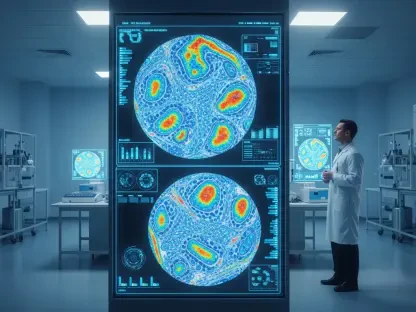The European Health Data Space (EHDS) marks a significant shift in healthcare within the European Union, profoundly affecting the management and usage of health data. It promises to empower EU citizens with better control over their health information while also improving clinical practices. The initiative also aims to fuel industry advancement, creating a more cohesive, secure, and efficient health data ecosystem.At its core, the EHDS will allow for seamless access and sharing of health data across member states, benefiting patients and healthcare providers by facilitating more informed decision-making and potentially enhancing treatment outcomes. Researchers and policymakers will gain from a more robust data pool, leading to improved health policies and innovations.In essence, the EHDS represents a step towards a digital future in healthcare, where data becomes a critical asset in driving forward patient care, medical research, and healthcare policies. The implications are vast, as the initiative stands to reshape the EU’s healthcare landscape by fostering a collaborative, data-driven approach to health and wellness.
Empowering EU Citizens with Control over Their Health Data
Personal Data Access and Governance
EU citizens stand to gain immensely in terms of accessing and governing their personal health data. Under the EHDS, individuals are assured comprehensive rights to their health information, fostering an atmosphere where personal autonomy and privacy are paramount. No longer will geographical borders or fragmented policies stifle the free flow of important health data; instead, citizens can effortlessly share their information across the EU, confident in the knowledge that their privacy is shielded by robust data protection standards.Engagement in one’s health has never been simpler, with the assurance that personal health data can be accessed promptly, contributed to consciously, and shared with trusted entities. Whether it’s choosing to opt-out of data sharing or limiting who can access one’s health records, the EHDS crystallizes the promise of empowering citizens with unassailable control over their health data.
Strengthening Data Privacy and Security
The EHDS is meticulously crafted to align with the stringent data protection principles dictated by GDPR. Ensuring data privacy and security is not just a promise but a prerequisite, with the system incorporating cutting-edge technologies and protocols to protect against unauthorized access and breaches. This scrupulous attention to privacy fortifies trust among EU citizens that their most sensitive information is treated with the highest degree of confidentiality and care.Data security within the EHDS framework is upheld by a combination of encryption, anonymization techniques, and stringent access controls. By weaving these elements into the fabric of EHDS, the EU demonstrates its unyielding commitment to safeguarding personal health information, while ensuring that its collective health data serves as a beacon of innovations in healthcare delivery and management.
Enhancing Clinical Practice across the EU
Improving Access to Patient Information
The EHDS holds the potential to revolutionize clinical practice by providing healthcare professionals with rapid access to crucial patient information. Instant availability of medical histories and test results can streamline the diagnostic process and tailor patient care to an unprecedented degree of precision. This not only enhances the therapeutic journey but also significantly reduces the frequency of redundant testing, leading to time and cost savings.Physicians and healthcare providers will find that the EHDS expedites clinical decisions by furnishing access to a holistic view of patient records. The possibilities for improved care are endless—from accurate medication management to timely interventions, the EHDS serves as a beacon for an era of informed and efficient medical practice.
Fostering Cross-border Health Data Exchange
Imagine a scenario where an EU citizen requires medical attention while traveling in another member state. With EHDS, their complete medical history becomes instantaneously accessible to local medical professionals, allowing for informed treatment decisions that resonate with the patient’s unique medical background. This portability of health data mitigates the risks associated with unfamiliarity of patient history and enhances the quality of care received while abroad.Sharing databases and collaborative platforms across EU borders is an integral element of the EHDS, presenting healthcare professionals with unprecedented access to peer insights and comparative data. This system, grounded in interoperability and mutual trust, empowers professionals to deliver superior care, harmonizes medical practices, and establishes a shared standard of health data utilization across the EU.
Driving Research and Policy Innovation with EHDS
Enabling Robust Health Research
The EHDS opens new frontiers in health research by permitting a streamlined and secure process for researchers to access a wealth of diverse and comprehensive data sets. This treasure trove of information is instrumental in carving out novel pathways in medical research and development, enabling breakthroughs that could potentially transform patient outcomes. Compliance with privacy regulations remains a central tenet, ensuring that sensitive personal data is used responsibly and ethically.With the availability of large-scale data, researchers can embark on ambitious, data-driven projects designed to unravel the complexities of various diseases, expedite the advent of personalized medicine, and test the efficacy of new treatments. The EHDS thus sets the stage for a surge in innovative research that stands on a foundation of data intelligence and integrity.
Informing Policy with Better Data
The European Health Data Space (EHDS) acts as a powerful tool for sparking policy innovation by supplying regulators and policymakers with robust data crucial for informed decision-making. High-quality, aggregated health data gives a clearer picture of healthcare patterns, disease spread, and the success of medical strategies, enabling the crafting of data-driven policies that directly address health needs.The EHDS effectively guides the direction of public health initiatives and improvements to the healthcare system, highlighting the importance of data utilization to tackle major health issues. It is an essential instrument for policymakers intent on advancing a Health Union that is agile, forward-thinking, and attuned to the dynamic needs of its populace. With EHDS, policymakers have the means to sculpt an adaptive health infrastructure rooted in real-world data, ensuring it remains relevant and effective in the face of changing health landscapes.
Stimulating Growth in the Health Industry
Innovating with AI and New Technologies
The emergence of the EHDS is a boon for the technological vanguard, specifically artificial intelligence (AI). With secure access to extensive datasets, developers and firms can revolutionize the capabilities of diagnostic tools and refine AI applications that lead the way in predictive analytics and personalized treatment plans. These advancements are not only scientific achievements but are also set to elevate the standard of patient care, pushing the frontiers of what’s possible in medicine.As the health industry embraces AI and novel technologies, the EHDS serves as both a catalyst and a linchpin for this innovation, offering a reliable infrastructure for testing and refining these advancements. The result is a thriving ecosystem that supports the growth of cutting-edge solutions that promise greater effectiveness and patient-centricity in healthcare.
Establishing a Unified Market for Health Data
One cannot underestimate the economic ripple effects of establishing a unified market for health data in the EU. As common standards come into play, the EHDS clears the path for industry growth, fostering an environment conducive to investments and innovation in health technologies. The envisioned €11 billion in savings over the next decade predicates a thriving marketplace that incentivizes companies to pioneer advances in care and technology.This creation of a single market for electronic health record systems and health data not only fuels the economy but sets the stage for scientific and medical evolution. It is an invitation to innovators and investors alike to contribute to a future where healthcare is not only more accessible and affordable but also cutting-edge, characterized by tailor-made treatments and interventions.
Building a Robust Governance Structure
The European Health Data Space Board and Stakeholder Involvement
The success of the EHDS hinges on a robust governance structure, which is why the establishment of the European Health Data Space Board is pivotal. This entity, consisting of representatives from Member States and the Commission, will be the central guiding force that ensures uniform adherence to the standards set forth by the EHDS. Alongside the Board, a stakeholder forum will be integrated to facilitate dialogue and gather diverse perspectives, making certain that EHDS policies are shaped by a composite view of healthcare priorities.By fostering a participatory environment where stakeholders can actively contribute, the EHDS governance framework not only maintains oversight but also promotes an ecosystem of transparency and accountability. It stands as a testament to the collaborative spirit that is fundamental to the European Health Union.
Secondary Usage of Health Data
The utilization of health data for purposes beyond primary care, termed secondary use, is another significant component of EHDS governance. Researchers, policymakers, and industry practitioners will have access to datasets intended for non-primary purposes like research or policy innovation under a framework that respects patient privacy. This is complemented by the principles laid out in the Data Governance Act, which provide a blueprint for managing such data ethically and responsibly.This confluence of transparency in governance with clear demarcations for secondary data use implies an environment where health data can be a wellspring for innovation without compromising the foundational ethos of privacy and security. EHDS thus channels the power of data to serve multidimensional functions, from advancing healthcare research to informing strategic policies, and doing so within a matrix of trust and respect for individual rights.
The Road Ahead: Implementing EHDS
Phased Implementation and Aligning Member State Systems
Establishing a system as expansive as the EHDS requires a meticulous and phased approach. The ambitious undertaking is set to begin with data exchanges by 2025, with incremental integration of additional data categories culminating by 2030. This gradual implementation caters to the varied levels of digital health maturity across member states, ensuring a cohesive transition that values consistency and readiness over haste.During the preparatory phase, the emphasis will be placed on aligning diverse digital health systems within the member states. This period of alignment is critical as it lays the groundwork for interoperability and seamless data exchange, key tenets of a successful EHDS. The interim allows for addressing technological disparities and fostering a unified, digital health landscape primed for the profound benefits that EHDS promises.
Financial Backing and Support
The scope and ambition of EHDS require strong financial support, which is where the EU4Health Programme, alongside other funds such as the Digital Europe Programme, steps in. They collectively earmark over €810 million towards EHDS initiatives, highlighting the European Union’s commitment to the project. This financial backing underscores the transformative potential of EHDS, not just as a healthcare initiative but as a strategic investment in the future of the Union’s health.Expected to generate significant savings, the EHDS is not simply an exercise in fiscal responsibility. It’s an investment in a healthier, more efficient future where economies of scale and strategic fund deployment promise both cost savings and enhanced healthcare outcomes. Through this support, EHDS is positioned to fulfill its vision—a unified and empowered European Health Union.









